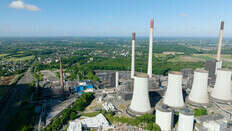- A demonstration plant with a capacity of 28 tons of ammonia per day will be built at Uniper's Gelsenkirchen-Scholven site.
- Construction has started, with commissioning planned for the end of 2026.
- The project is supported by funding from North Rhine-Westphalia and contributions from both companies.
- Ammonia cracking technology is key for converting ammonia into hydrogen for industrial use.

Project Overview
thyssenkrupp Uhde and Uniper are collaborating to advance ammonia cracking technology for hydrogen production. A demonstration plant with a capacity of 28 tons of ammonia per day will be constructed at Uniper's Gelsenkirchen-Scholven site in Germany. This plant will serve as a precursor to a larger hydrogen import terminal planned for Wilhelmshaven.
Technology and Goals
The partnership aims to convert imported ammonia into hydrogen on an industrial scale, supporting industries like energy, steel, and chemicals. Ammonia, with its higher energy density and ease of transport, is an effective carrier for hydrogen. The project seeks to leverage existing ammonia infrastructure for hydrogen transport and storage.
Funding and Development
The project receives financial support from the state of North Rhine-Westphalia, alongside significant investments from both companies. The demonstration plant will provide data for optimizing and scaling the technology to industrial levels, paving the way for the first commercial plant.
Timeline and Implementation
Construction of the demonstration plant has commenced, with commissioning expected by the end of 2026. The facility will be located on Uniper's power plant site in Gelsenkirchen-Scholven, where sustainable projects are being developed. All necessary approvals for construction and operation have been secured.

